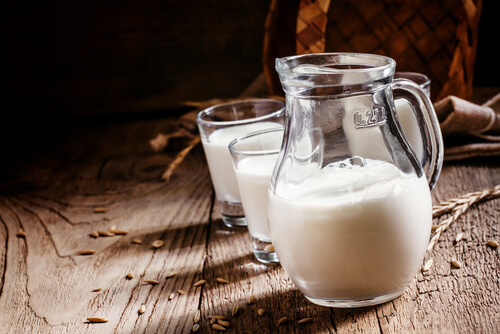 Gastroesophageal reflux disease (GERD) or acid reflux is a common condition that affects between 44 million and 64 million adults in the US, namely, 18% and 28% of all US adults. The disease does not discriminate along lines of age though, with infants right through to the elderly being susceptible.
Gastroesophageal reflux disease (GERD) or acid reflux is a common condition that affects between 44 million and 64 million adults in the US, namely, 18% and 28% of all US adults. The disease does not discriminate along lines of age though, with infants right through to the elderly being susceptible.
Acid reflux happens when the sphincter at the top of the stomach does not close properly, allowing food and stomach acids to move back up the esophagus. The esophagus is the food pipe that connects the mouth to the stomach. Constant acid backflow up the esophagus can cause it to become inflamed. In rare cases, cancer of the esophagus can also develop.
Most people also refer to GERD or acid reflux as heartburn. To qualify as GERD, mild heartburn has to be experienced at least twice a week. If the heartburn is severe, a diagnosis of GERD will be made if acid reflux happens once a week.
Factors that contribute to GERD are obesity, pregnancy, and not emptying the stomach on time, or regularly. By far the biggest aggravating factor is diet. The foods you eat, and how often you eat them, affect how much acid your stomach produces. Eliminating foods that can cause an episode of GERD is therefore critical to managing the disease.
Here are the 15 top acid reflux-inducing foods to omit or limit in your diet.
1. Whole milk or Milk Products
Whole milk is also known as full-cream milk because hardly any fat has been removed. Scientific studies have been done on the link between cow’s milk and GERD in children. Scientists were able to establish that children who are allergic to cow’s milk will often experience heartburn once they have finished drinking it.
It is not clear whether this is also true for adults, but the evidence is increasingly suggesting this to be the case. If you regularly experience heartburn after eating foods made with whole milk, it is a good idea to phase this out of your diet.
On the basis of the study linking cow’s milk to heartburn in children, some GERD diets, therefore, also suggest that you cut out any food groups that trigger your allergies. The most common are processed dairy products, glutinous foods, nuts, and eggs, to a lesser extent. Processed foods also fall into this category, due to the artificial additives found in them.
Full cream milk substitutes include skim, 1% or 2% low-fat milk; and low-fat or fat-free yogurt.


